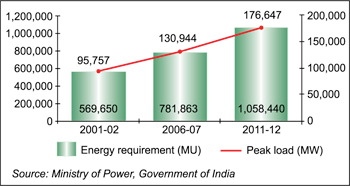With the recent launch of a Solar Research Energy Institute, and with more such research centres expected to be set up in India soon for both solar photovoltaic and solar thermal technologies, career opportunities in this sector are only going to increase.
“There will be demand for better electronics products like solar charge controllers, solar inverters and energy monitoring systems that are more suited for Indian conditions,” says Ganesh Shankar. “There will also be a lot of scope for field work, which has more to do with connecting systems like solar panels, mounting structures, batteries, charge controllers, inverters and the load in setting up power plants,” he adds.
Skills required
Skills required depend on the function to be played in the organisation. Usually, candidates are expected to be an expert in product development processes and troubleshooting machines, with a good insight into the manufacturing processes, analytical bend of mind and also knowledge of financial aspects of project report preparation, cost estimation and proposal preparation. Knowledge of power electronics will be an added advantage as they will have to deal with power electronics systems like charge controllers and inverters.
“The skill set required in solar manufacturing units tends to be slightly different from the ones in other departments like marketing, sales and administration. For marketing and sales in the solar sector, an aspirant can focus on getting an MBA from a reputed college combined with the relevant business development experience in executing large projects,” says Arya, adding, “For designing and developing core solar systems, a B.Tech/M.Tech graduate is desirable, who has the potential to design and develop systems. For installation, BE degree/diploma holders in civil infrastructure/ switch yards are required, who can work as project managers.”
The opportunities are unlimited as the potential of power generation is also unlimited. “A candidate would need diploma in engineering for standalone testing or integrated testing of a system, whereas a graduate in engineering with electrical and electronics is usually responsible for commissioning of large systems,” says Nayak. He further states, “Postgraduates would be required to look at the higher valueadding possibilities, research and design of systems. PhD graduates would address optimisation of solutions and invention in bulk storage systems and new technologies like organic solar modules.”
Most solar companies prefer a BE degree even for the position of a sales manager. They also expect the candidate to be enthusiastic and passionate about the industry, having a good understanding of the solar PV market, and capable of dealing with both domestic and international players.
Singh says, “A degree in engineering, finance, business development, quality control or marketing is the basic requirement. In addition, there is a significant and growing requirement for mechanical and electrical engineering diploma holders for installation, commissioning and certification of solar modules and farms.”
Commenting on why engineers with any background would be able to take up jobs in solar sector, Shankar says, “It pretty much involves all fields of engineering. However, an engineer with electronics or electrical background would be able to appreciate the system with circuit parameters like current, voltage, power and resistance.”
Since it has more to do with power generation, those with power engineering background can also play a great role in doing feed-in systems.

Fig. 2: Trends in energy requirement and peak load of India over last ten years
Roles in the solar sector
Solar sector offers many varied roles, including solar energy system installer or designer, sales consultant, installation electrician, engineering technician, photovoltaic design engineer, fabrication technician and installation foreman.
Singh says, “Entry-level positions start from trainee engineers in manufacturing, system and project design, installation, operation and maintenance, procurement, etc.”
Adding to the kind of role candidates would perform, Ganesh Shankar says, “Field job may not require great qualification, and a diploma holder may be able to perform as good as an engineer. Product design, on the other hand, would be better suited for engineers with a good knowledge of circuit design.”
“Technicians will be required for assembly testing of cells and panels and also for installing and testing the panels at site,” says Nayak. Talking about his company PenA (Power Engineering and Automation), Nayak adds, “We hire people for testing and commissioning of PV systems and also designing the system with initial exposure to working at site.”
For the position of sales and marketing manager, those who have an experience of three to five years in the solar industry are preferred. A sales and marketing manager is required to research and develop marketing strategy, identify business partners like distribution agents, contractors and vendors for supporting sales and delivery, organise service, maintenance and installation, support the local market and prepare budget for the business. He is also accountable for profit and loss.







hello sir,
being in EPC side,,,,,what would be the expected salary